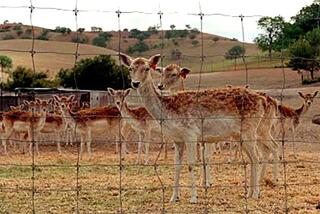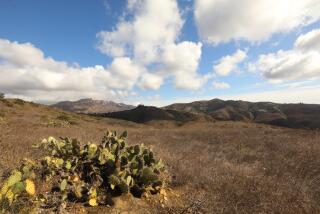Secret Contra Supply Airstrip in Costa Rica to Become a Park
- Share via
WASHINGTON — One of the most publicized “secret” landing strips in history, built in northern Costa Rica as part of Lt. Col. Oliver L. North’s Iran- contra empire, will become part of a national park Saturday, the Costa Rican Embassy announced Wednesday.
The strip was designed to supply the Nicaraguan rebels’ southern front but was believed to have been used only once before Costa Rica’s newly elected President Oscar Arias Sanchez made its existence public last year and ordered it closed. Now, Arias will sign an appropriation decree making the site part of the Santa Rosa National Park, embassy officials said.
The property has been expropriated from its previous owner, Joseph Hamilton, an American textile manufacturer who lives in San Jose, Costa Rica. In a telephone interview, Hamilton said he is concerned about what compensation he will receive and complained that Udall Research Corp., one of North’s numerous front organizations, had started to buy the land in 1985 but had made only a single payment.
Last month, a Costa Rican source reported that Hamilton was trying to get title to his land back, but Wednesday Hamilton said: “I just want to keep a low profile.”
The former U.S. Air Force pilot said he bought the site of the landing strip more than a decade ago with the intention of developing a resort to take advantage of the exceptional deep-sea fishing off the Santa Elena peninsula on Costa Rica’s Pacific coast.
But the area quickly became inhospitable for tourists as Nicaraguan rebels opposed to the late dictator Anastasio Somoza based themselves there for raids across the border. Later, when the rebels became the Sandinista government of Nicaragua, new opposition forces known as the contras established bases there.
The embassy statement recalled that the peninsula is the site of the 1845 battleground where Costa Rican peasants defeated an army led by a U.S. freebooter, William Walker. More significantly from an environmental standpoint, the peninsula is largely covered by the last tropical dry forest in the country.
“The area will be consolidated as a national park, thus strengthening the peace initiative for Central America launched by President Arias in February,” the embassy’s statement said. “The celebration will include hundreds of schoolchildren from nearby communities, who will plant seedlings of the Guanacaste national tree in the area previously occupied by the airstrip, symbolically confirming Costa Rica’s commitment to conservation and peace.”
More to Read
Sign up for Essential California
The most important California stories and recommendations in your inbox every morning.
You may occasionally receive promotional content from the Los Angeles Times.










